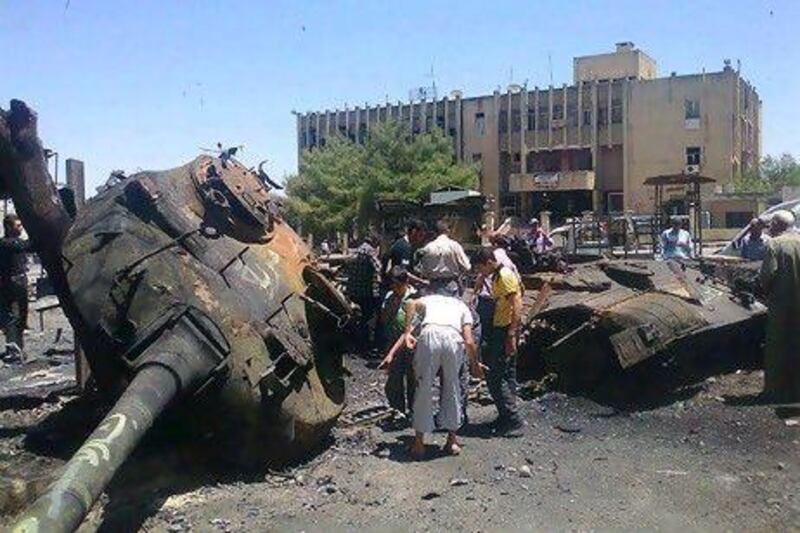BEIRUT // Syrian rebels announced yesterday they were no longer bound by the ceasefire that is a key part of the Kofi Annan peace plan.
The rebels had warned last week they would be "free of any commitment" to the United Nations-Arab League envoy's plan if the regime of Bashar Al Assad failed to stop the violence by Friday.
"We have decided to end our commitment to this and starting from that date we began defending our people," Major Sami Al Kurdi, a spokesman for the rebel military council, said yesterday.
Rebel fighters killed at least 80 government soldiers at the weekend, according to the opposition Syrian Observatory for Human Rights.
The ceasefire was supposed to take effect on April 12 and be observed by both sides.
The Annan plan has failed to end the bloodshed - hundreds have died in attacks by government forces and militias linked to the regime - but the UN secretary general Ban Ki-moon and others insisted yesterday it was still the best way forward to a political transition.
"Annan's plan remains central to the resolution of the Syrian crisis," Mr Ban said.
European leaders warned that differences over how to deal with Syria could push the country closer to civil war, and urged Russia to back a tougher stance against the Syrian government.
"We fully agree that the Annan plan as a whole provides the best opportunity to break the cycle of violence in Syria, avoiding a civil war and finding a peaceful, lasting solution," the European Union president Herman Van Rompuy said after talks in Saint Petersburg with the Russian president, Vladimir Putin.
"We need to combine our efforts in order for this to happen and to find common messages on which we agree," Mr Van Rompuy said.
Moscow has remained one of Damascus's main allies, opposing tougher UN Security Council action and dismissing calls for Mr Al Assad to step down.
Like Russia, China has also rejected foreign military involvement. The main state newspaper, the People's Daily, warned yesterday against any armed intervention, and said it would lead only to more chaos and bloodshed.
[ zconstantine@thenational.ae ]
* With additional reporting by Reuters, the Associated Press and Agence France-Presse





